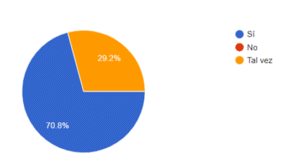EXECUTION AND SCALEUP
Document with our fieldwork evidence
ECOCO_Round-3_EXECUTION-AND-SCALE-UP
Here are our 10-minute video- recorded pitch
Sustainable Development Goals
13 Climate action: we will mitigate the waste of coconut residues that end up in landfills being burned which contributes to the greenhouse effect and global warming.
12 Responsible consumption and production: we expect to improve consumption habits since our products become a substitutes for those that are harmful to the environment and health.
8 Decent work and economic growth: In our production process we seek to provide decent jobs for women in vulnerable conditions.
- Our mission and vision are oriented to create economic, social and enviromental value.
Mission: We are a company that collects discarded coconut shells, transforming them into products for daily use, creating a network of contributions to the environment and minimizing pollution.
Vision: Become a company that minimizes coconut fiber waste and it´s impact while generating jobs for women in vulnerable conditions, improving their´s family’s economy.
Social issue
Our first social problem is mosquito-borne diseases such as dengue, Zika, chikungunya, malaria and yellow fever. These diseases have a seasonal pattern: most cases in the southern hemisphere occur in the first half of the year and most cases in the northern hemisphere in the second half of the year. This pattern corresponds to the warmest and rainiest months. (Pan American Health Organization, 2024).
The main countries of death from dengue are: Brazil, Argentina and Paraguay.

Our second social problem is the unemployment of women in cases of economic vulnerability, providing workshops and jobs to women from the Municipal Women’s Institute in Veracruz to provide an economic income to this sector of the population. Ecoco seeks to generate a decent source of income for the women of this Institute in the future.
Here are some photos of the first workshop made in Minatitlan, Veracruz.


The next workshop will be held on July 15, 2024 in Veracruz port, where our social adoption will be doubled.
Environmental issue
About 85% of the shells of the billions of coconuts grown around the world are discarded as waste, adding fuel to the fire of global pollution. (IOP Lecture Series: Earth and Environmental Sciences). For this reason, Ecoco adopted a circular economy to take advantage of coconut fiber in everyday products such as flower pots and mosquito repellents. Therefore, Ecoco seeks to have more coconut fiber suppliers and increase its production.

Growth potential
The potential target of the pots are people who practice gardening or like plants, so we conducted a survey through the Google forms platform to 300 people from the state of Veracruz to determine the target market and find out how many people practice gardening in Veracruz and how many of them would be willing to buy our products.


Growth rate
Ecoco plans to grow alongside the market with an annual sales growth rate of 5.7% for pots and 7.18% for repellents. We will achieve this by expanding our production centers and copying our business model in countries with mass coconut production.
Ecoco has two active e-commerce platforms WhatsApp Business and a website to be within reach of our target market and boost our sales.
Our beneficiary growth rate has improved significantly, evidenced by the increase in followers on our social networks.
Our multichannel distribution strategy
We expect to have more presence in the market, covering different avenues so that clients and potential clients have more accessibility to our products, creating loyalty over time.

Here are how our stakeholders contribute to our goals
- The king of coconut: They provide us with coconut shells, so we can extract coconut fiber and make our products.
- Municipal Women´s Institute: For our production stage, we implement the women of the Institute.
- Department of Chemical Engineering: They help us with technical knowledge and studies done to our products to know their efficiency.


Intellectual capital
To have strong evidence about having valiable intellectual capital, alongside the Bioanalysis Laboratory of the Universidad Veracruzana, we got a technical study made on our repellents by Carolina Barrientos Salcedo, PhD Full Professor, member and head of the Research Medicinal Chemistry Laboratory Faculty of Bioanalysis. Repellent report
The pots were presented to 9 Nursery establishments.
Mr. Horacio is interested in being a distributor of the pots, selling them as handmade pots. In addition, he assured that this type of pots are very good for small plants such as succulents.
 In our document are the others opinions.
In our document are the others opinions.
For the case of our repellent, we made a sample of 85 people to evaluate the acceptance.
As a result, we obtained that 90% of respondents indicated that they would purchase the repellent.

Also, we surveyed 74 people from other areas who face mosquito problems, we asked them:
Would you be willing to buy our mosquito repellents made of coconut fiber?
- 70.8% stated that they would buy the repellent once it was available.
- 29.2% responded “maybe”

Studies carried out by Ecoco have shown the popularity of our products, coconut fiber pots and mosquito repellents. The positive market response demonstrates that we are prepared to market our products in a way that meets the needs of consumers and, at the same time, has a significant impact on Mexico’s society and environment. (Read the documento for more evidence)
Here are our risk management. (Our solution strategies are in the video)
- Market risk: Preference in other more popular brands
- Financial Risk: Limited investment
- Legal risk: Other companies may copy our logo and name during the trademark registration process.
- Operational risk: Dependence on the production of a shredding machine
- Environmental risk: We depend on the weather, for the correct drying of our product.
ESG Performance
Here are some KPI´s we implement to procure our social, enviromental impact, as well to secure governance strucutre. (Read the document where we explained each)




